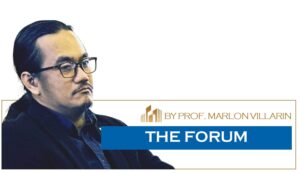The recent Pulse Asia and SWS surveys reveal that Vice President Sara Duterte continues to command high trust and approval ratings, a reality that sends ripples through the Philippine political landscape. This development not only highlights her formidable political presence and influence but also poses significant effects for the nearing 2028 presidential election and the nation’s socio-political fabric.
The Marcos administration with the help of his cohort’s concerted efforts to leverage political and media resources to undermine VP Duterte’s political standing underscore a larger narrative of dynastic power struggles. This attempt to marginalize VP Sara Duterte reflects the intensifying competition between the Duterte and Marcos political dynasties. Despite numerous bold attempts, Duterte’s sustained popularity demonstrates a resilient base of support that refuses to wane, suggesting that her political influence remains robust and potentially insurmountable.
The enduring and uncompromising support for the Duterte Family exacerbates the existing political divisiveness in the country contrary to Unity rhetoric they offered during 2022 presidential campaign and election. Her high trust and approval ratings indicate a deep-seated loyalty among her supporters, which contrasts sharply with the Marcos administration’s base. This schism is likely to deepen as both factions bid for political dominance, fostering an environment of heightened political tension and social polarization. The implications for the socio-political landscape are profound.
As the 2028 presidential election approaches, the nation may witness a more fractured electorate, with loyalties divided along the lines of these powerful political families. This division can potentially hinder consensus-building efforts and complicate governance, as the political discourse becomes increasingly adversarial. VP Duterte’s continued high approval ratings position her as a significant contender for the 2028 presidential race. Her political strategy moving forward will be crucial in determining her viability as a candidate. Should she choose to run, her campaign will likely capitalize on her established base, leveraging her father’s legacy and her own political achievements to galvanize support.
Conversely, the Marcos administration’s attempts to diminish her political influence may backfire, potentially galvanizing her supporters and engendering a sense of resistance against perceived political machinations. This dynamic could create a rallying effect, boosting her candidacy and complicating the Marcos administration’s political calculus.
The inevitable return of the Duterte family to national politics raises questions about the future trajectory of Philippine governance. Should VP Duterte secure a significant political position in the 2028 election, it would signal a reaffirmation of the Duterte legacy, characterized by strongman politics and a focus on law and order. This potential resurgence could redefine the socio-political landscape, reinforcing populist tendencies and challenging the prevailing political norms. It may also prompt a reevaluation of the role of political dynasties in shaping the nation’s future, as the electorate grapples with the implications of concentrated political power.
As the nation navigates this complex terrain and political dramas, the consequences for governance, political stability, and the future of the Duterte legacy will be closely observed, carrying far-reaching implications for the democratic trajectory of the country.




